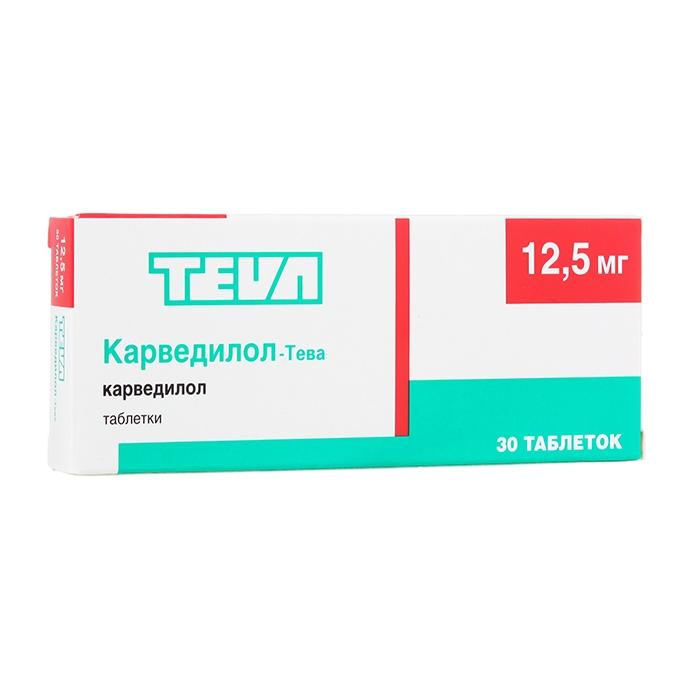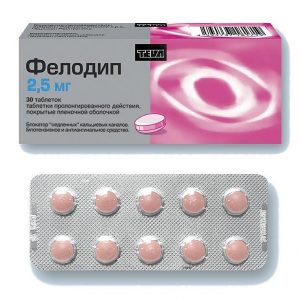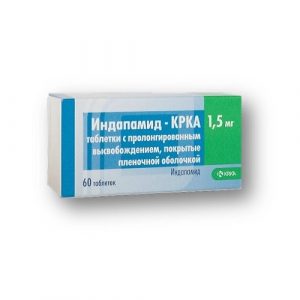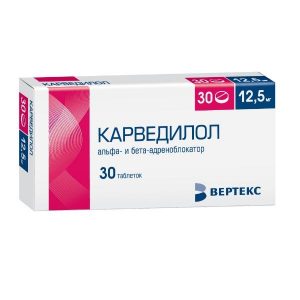Description
release form
Carvedilol-Teva tablets
packaging 30 pcs
Pharmacological action
Pharmacodynamics
Carvedilol blocks alpha-1-, beta-1- and beta-2-adrenergic receptors. It has a vasodilating, antianginal and antiarrhythmic effect. The vasodilating effect is mainly associated with blockade of alpha 1 receptors. Due to vasodilation, it reduces the total peripheral vascular resistance (OPSS). It does not have its own sympathomimetic activity, has membrane stabilizing properties. The combination of vasodilation and beta-adrenergic blockade leads to the following effects: in patients with arterial hypertension, a decrease in blood pressure (BP) is not accompanied by an increase in OPS, peripheral blood flow does not decrease (unlike beta-blockers). Heart rate decreases slightly. In patients with coronary heart disease it has an antianginal effect. Reduces pre – and afterload on the heart. It does not have a pronounced effect on lipid metabolism and the content of potassium, sodium, and magnesium in blood plasma. In patients with impaired left ventricular function or circulatory failure, it favorably affects hemodynamic parameters and improves the ejection fraction and size of the left ventricle. It has an antioxidant effect, eliminating free oxygen radicals.
Pharmacokinetics
Carvedilol is rapidly and almost completely absorbed after oral administration from the gastrointestinal tract. It binds almost completely to plasma proteins (98-99%). The concentration in the blood plasma is proportional to the dose taken. Bioavailability of about 25% due to the high degree of metabolism in the liver. In this case, metabolites are formed that have a high ability to block beta-adrenergic receptors.
Maximum plasma concentration is reached after 1 hour. The elimination half-life is 6-10 hours.
In elderly patients, the concentration of carvedilol in plasma is approximately 50% higher than in young patients. It is excreted mainly with bile. In patients with impaired liver function, bioavailability can increase up to 80%. Penetrates through the placental barrier, excreted in breast milk. Food slows down the absorption of the drug, but does not affect its bioavailability.
Indications
Arterial hypertension (in monotherapy and in combination with diuretics)
Chronic heart failure (as part of combination therapy)
Coronary heart disease: stable angina pectoris.
Contraindications
Hypersensitivity to carvedilol or other components of the drug,
acute and decompensated chronic heart failure,
requiring intravenous administration of inotropic drugs,
severe hepatic failure,
atrioventricular II-fold, less than 50%. min),
sinus node weakness syndrome,
arterial hypotension (systolic blood pressure less than 85 mmHg),
cardiogenic shock,
bronchial asthma,
chro obstructive pulmonary disease,
under 18 years of age (efficacy and safety not established).
Precautions
Bronchospastic syndrome, chronic bronchitis, pulmonary emphysema, Prince Metal angina, thyrotoxicosis, peripheral vascular occlusion diseases, pheochromocytoma, psoriasis, renal failure, atrioventricular block I degree, extensive surgery and general anesthesia, diabetes mellitus, hypoglycemia, depression, myasthenia gravis.
Use during pregnancy and lactation
There have been no controlled studies on the use of carvedilol in pregnant women, therefore, the appointment of this drug in this category of patients is possible only in cases where the benefit to the mother outweighs the potential risk to the fetus.
Breastfeeding during carvedilol treatment is not recommended.
Overdose
Symptoms: reduction of blood pressure (accompanied by dizziness or fainting), bradycardia. Shortness of breath due to bronchospasm and vomiting may occur. In severe cases, cardiogenic shock, respiratory distress, confusion, conductivity disorders are possible.
Treatment: it is necessary to monitor and correct vital indicators, if necessary – in the intensive care unit. Treatment is symptomatic. Intravenous use of m-cholin blockers (atropine), adrenomimetics (epinephrine, norepinephrine) is advisable.
Storage conditions
Store in a dry, dark place at a temperature not exceeding 25 ° C.
The Expiration of
is 3 years.
dosage form
dosage form
tablets
Teva Pharmaceutical Enterprises Co., Ltd. Israel




